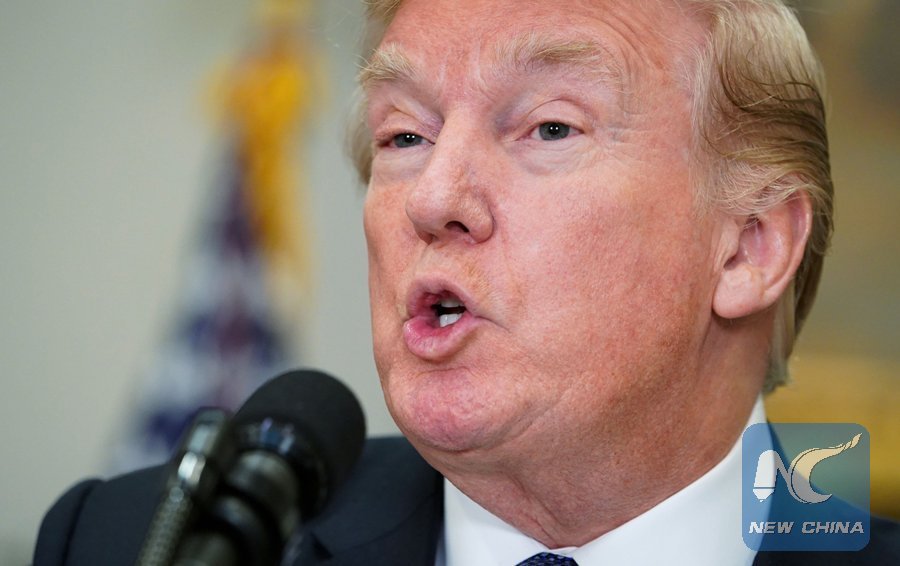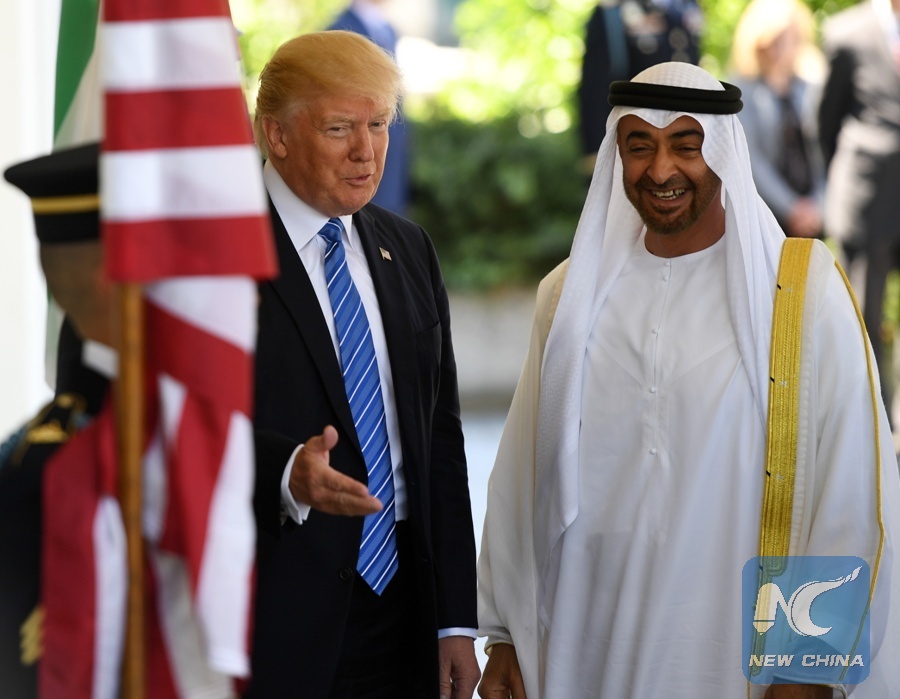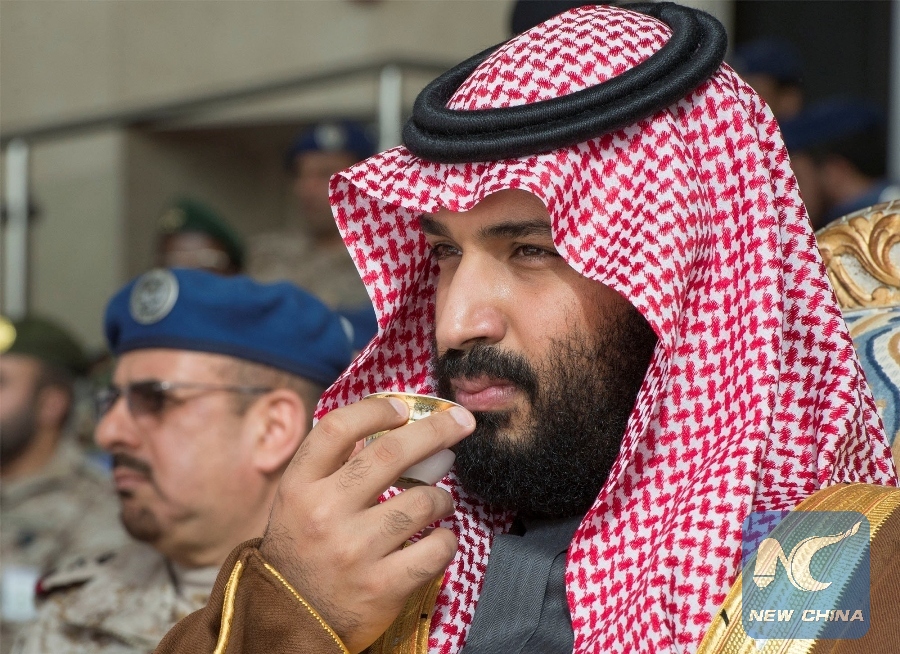
File Photo: U.S. President Donald Trump speaks during an announcement on the White House Initiative on Historically Black Colleges and Universities in the Roosevelet Room of the White House on Feb. 27, 2018 in Washington, DC. (Xinhua/AFP)
WASHINGTON, Feb. 27 (Xinhua) -- U.S. President Donald Trump on Tuesday spoke respectively with leaders of the United Arab Emirates (UAE) and Saudi Arabia, when he encouraged the two nations to enhance Gulf cooperation to counter Iran's regional influence.
The White House said in a statement that in Trump's call with the UAE's Crown Prince Mohammed bin Zayed, the two leaders discussed regional development and opportunities to further enhance bilateral partnership on security and economic issues.

U.S. President Donald Trump (L) welcomes Sheikh Mohamed bin Zayed Al-Nahyan, Abu Dhabi Crown Prince of the United Arab Emirates (UAE), at the White House in Washington D.C., the United States, on May 15, 2017. (Xinhua/Yin Bogu)
Trump expressed the hope that all Gulf Cooperation Council (GCC) states could better counter Iran's "destabilizing" activities and defeat terrorists and extremists.
The two leaders also said that a united GCC is important "to mitigate regional threats and ensure the region's economic prosperity."
In a separate call with Crown Prince Mohammed bin Salman of Saudi Arabia on Tuesday too, Trump also talked about regional development.

Saudi Arabia's Crown Prince Mohammed bin Salman drinks coffee during the graduation ceremony of the 93rd batch of the cadets of King Faisal Air Academy, in Riyadh, Saudi Arabia, Feb. 21, 2018. (Xinhua/REUTERS)
The two leaders vowed to further enhance the American-Saudi partnership on security and economic front.
Thanking the crown prince for boosting GCC cooperation to counter Tehran's influence, Trump agreed with him on the importance of having a united GCC "mitigate regional threats and ensure the region's economic prosperity."
Last year, Saudi Arabia, the UAE, Bahrain, and Egypt accused Qatar of "supporting terrorism" and "undermining regional security" by seeking closer ties with Iran.
Qatar strongly denied what it called the "unjustified" and "baseless" accusations.
The standoff, rather than showing any signs of abating, has been exacerbated by Trump's remarks in June that Qatar had funded terrorism "at a very high level."

